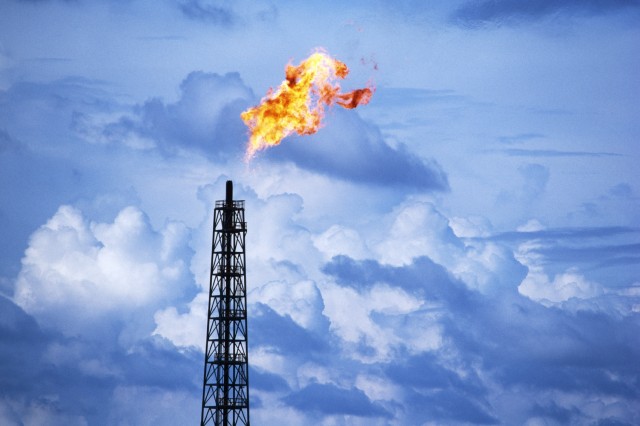

EPA announces rules to slash methane leaks throughout oil and gas supply chain
source link: https://arstechnica.com/tech-policy/2021/11/epa-announces-rules-to-slash-methane-leaks-throughout-oil-and-gas-supply-chain/
Go to the source link to view the article. You can view the picture content, updated content and better typesetting reading experience. If the link is broken, please click the button below to view the snapshot at that time.

Low-hanging fruit —
EPA announces rules to slash methane leaks throughout oil and gas supply chain
Regulations would reduce leaks of the potent greenhouse gas by 75 percent.
Tim De Chant - 11/2/2021, 5:52 PM

The EPA announced new rules today that would slash methane leaks from the oil and gas sector, a significant source of carbon emissions that represents 30 percent of methane pollution in the US.
Nearly every step in the oil and gas supply chain would be affected, from production to processing, storage, and transmission. In a first, the rules would apply to old wells in addition to new ones, and the rules would introduce “a comprehensive monitoring program to require companies to find and fix leaks,” the EPA said. Altogether, the rules would trim the oil and gas sector’s methane leaks by 75 percent, the administration estimated.
Leaks are rife throughout the industry, amounting to 2.3 percent of all natural gas production in the US. Globally, leaks are responsible for just over 5 percent of all energy-related greenhouse gas emissions, according to the International Energy Agency.Methane is a significant source of greenhouse gas emissions, representing 10 percent of carbon pollution in the US alone. One ton of the gas warms the atmosphere 84 times more than one ton of carbon dioxide over the course of 20 years. And while eliminating methane pollution alone won’t limit warming to 1.5˚ C, which is broadly accepted as a “safe” amount of warming, the gas’s outsize impact means that plugging methane leaks is relatively low-hanging fruit.
Large oil and gas companies have generally favored methane regulations, while smaller firms have opposed them. Such divisions are commonplace in a variety of industries, since larger companies tend to have more resources to comply with rules. In the case of methane, regulations could meaningfully boost larger companies’ profits. In many cases, leaked methane can’t be sold. But because leaked methane is still a small percentage of all natural gas produced, volumes must be large for the savings to translate into significant amounts—which is why larger companies have been more accepting of leak-plugging regulations.
AdvertisementGlobal pledge
The new EPA rules were announced as representatives from the world’s governments convene for the second day of the COP26 climate meeting in Glasgow, Scotland. More than 80 countries signed a global methane reduction pledge, which was spearheaded by the US and the European Union. The pledge seeks to trim methane pollution worldwide by 30 percent by 2030.
In the US, the Biden administration is seeking to halve methane pollution by the end of the decade and hit net-zero by 2050. Oil and gas companies will have to use methane-spotting cameras quarterly to identify leaks so they can be stopped, and oil wells won’t be able to vent natural gas as they have in the past.
Alongside the EPA’s proposed rules, other US government agencies introduced new regulations and programs aimed at curbing methane emissions.
The Pipeline and Hazardous Materials Safety Administration will push utilities and gas companies to fix leaks in natural gas distribution lines throughout the country. The Department of Agriculture is working with farmers and ranchers to reduce methane emissions from manure, and the Department of Energy recently launched a program to speed the adoption of heat pumps and induction stoves to reduce the need for natural gas, which also contributes to poor air quality inside homes and apartments. The Bureau of Land Management is planning to charge companies royalties for any gas that is vented or flared on public lands.While the new regulations do not cover leaking abandoned wells, which pollute as much as a day's worth of oil consumption in the US, Agency officials said those sites could be addressed in a proposal next year.
Recommend
About Joyk
Aggregate valuable and interesting links.
Joyk means Joy of geeK